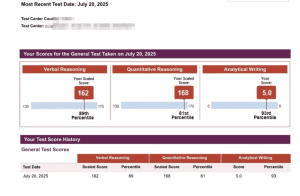As online exam takers increasingly adopt digital exams, it’s essential to understand the benefits and strategies for success. Students from Rongotai College and Paraparaumu College have shared their positive experiences with digital exams. They highlight a more comfortable and efficient experience.
For those preparing for their digital exams, having the right support can make all the difference. You can reach out to our team via WeChat: Essay-Kathrine, WhatsApp: +852 4455 3510, or Telegram: +1(815)824-0640 for guidance and assistance.
Key Takeaways
- Understand the benefits of digital exams for a more comfortable experience.
- Learn strategies for success as a digital exam candidate.
- Get support from our team for your digital exam preparation.
- Discover how digital exams can enhance your overall exam experience.
- Prepare effectively with the right resources and guidance.
The Evolution of Digital Assessments
The educational assessment landscape has undergone a profound transformation with the introduction of digital testing. This evolution has significantly altered the manner in which assessments are conducted. It impacts both the institutions responsible for administering these tests and the digital assessment candidates.
The Shift from Paper to Digital Testing
The transition from traditional paper-based exams to digital testing has been propelled by technological advancements and the quest for more efficient assessment methods. Digital exams offer the benefit of scalability, enabling them to be administered to a large number of candidates at once.
Benefits of Digital Examination Systems
Digital examination systems bring several advantages, including rapid grading, instant feedback, and enhanced security features. These systems also enable more flexible assessment formats, such as interactive questions and simulations. These formats can more effectively evaluate a candidate’s skills.
Challenges Faced by Test-Takers
Despite the benefits, remote exam candidates encounter specific challenges. These include technical barriers and the necessity to adapt to new testing environments.
Technical Barriers
Technical issues, such as connectivity problems or hardware malfunctions, can impede a candidate’s ability to complete their exam. It is imperative for test candidates to ensure they possess a reliable internet connection and compatible hardware.
Adaptation Requirements
Candidates must also adapt to the digital format, which may involve navigating through different exam sections using digital interfaces. Familiarizing oneself with the exam platform before the actual test day is crucial.
By grasping these aspects, digital assessment candidates can better prepare for the challenges and opportunities presented by digital exams.
Who Are Digital Exam Candidates and What They Need to Know
The transition to digital assessments necessitates an understanding of digital exam candidates. These individuals, known as online exam takers or electronic exam participants, engage in assessments via digital platforms. The Cambridge English Qualifications Digital exam tips underscore the significance of grasping the exam’s format and requirements. This knowledge is crucial for success in digital exams.
Demographics and Growing Trends
Digital exam candidates come from a wide range of demographics. They span various age groups, educational backgrounds, and geographical locations. The trend towards digital exams is growing, driven by their flexibility and convenience. For example, candidates can seek support through WeChat, WhatsApp, or Telegram, enhancing accessibility.
Required Digital Literacy Skills
Candidates must possess specific digital literacy skills to excel in digital exams. These include basic computer proficiency, familiarity with digital platforms, and the ability to navigate online interfaces efficiently. They must also be aware of the technical requirements for the exam, such as internet connectivity and compatible devices.
Common Misconceptions About Online Testing
Several misconceptions surround online testing that candidates should dispel. Key concerns include difficulty level comparisons and security issues.
Difficulty Level Comparisons
Some candidates perceive digital exams as either easier or harder than traditional paper-based exams. However, the difficulty level is generally comparable, with the main difference being the format. It’s essential for candidates to recognize that the content and assessment criteria remain largely unchanged.
Security Concerns
Security is paramount in digital exams. Candidates should be informed that digital proctoring systems are employed to safeguard the examination process.
“The use of advanced proctoring tools and secure browsing software helps to prevent cheating and maintain a fair testing environment.”
Understanding these security measures can alleviate concerns and enable candidates to concentrate on their exams.
Essential Technology Setup for Success
A well-prepared technology setup is the cornerstone for virtual exam candidates to excel. It’s imperative to optimize your equipment and environment for digital exams. This can significantly reduce stress and enhance your overall performance.
Hardware Requirements Checklist
To start, ensure your computer meets the necessary specifications for smooth exam software operation.
Computer Specifications
- Processor: Your computer should have a recent-generation processor with sufficient speed.
- RAM: Adequate RAM (at least 4GB, but 8GB or more is recommended) is essential for multitasking and running demanding applications.
- Storage: Use a solid-state drive (SSD) for faster data access and overall system performance.
Webcam and Microphone Quality
For exams that require proctoring, a good quality webcam and microphone are necessary.
- Webcam: Ensure it has a high enough resolution (720p or higher) and can operate well in various lighting conditions.
- Microphone: Opt for a clear, noise-cancelling microphone to minimize background distractions.
Software and Browser Compatibility
It’s vital to check that your computer and browser are compatible with the exam platform.
- Update your browser to the latest version.
- Ensure any required plugins or software are installed and compatible with your system.
Internet Connection Stability Solutions
A stable internet connection is critical. Consider:
- Wired Connection: Prefer a wired Ethernet connection over Wi-Fi for greater stability.
- Internet Speed: Ensure your internet speed meets the exam platform’s requirements.
If you’re experiencing connectivity issues, consider reaching out to your internet service provider or using a mobile hotspot as a backup.
Backup Systems and Contingency Plans
Always have a backup plan in place.
- Power Backup: Invest in an uninterruptible power supply (UPS) to keep your devices running during power outages.
- Alternative Devices: Have access to a secondary device (like a laptop or tablet) in case your primary device fails.
By following this checklist, digital assessment candidates can minimize technical issues and focus on their exam performance.
For additional support or to discuss your specific needs, feel free to contact us via WeChat: Essay-Kathrine, WhatsApp: +852 4455 3510, or Telegram: +1 (815) 824-0640.
| Component | Minimum Requirement | Recommended |
|---|---|---|
| Processor | Dual-core | Quad-core or higher |
| RAM | 4GB | 8GB or more |
| Storage | 256GB HDD | 512GB SSD or larger |
| Webcam Resolution | 480p | 720p or higher |
| Internet Speed | 5 Mbps | 10 Mbps or faster |
Creating Your Optimal Testing Environment
For remote examcandidates, setting up a conducive testing space is crucial. A well-organized, distraction-free environment significantly enhances focus and success in digital exams.
Physical Space Organization
Ensure your testing area is clutter-free and dedicated solely to the exam. This approach helps avoid distractions and fosters a mental connection between the space and the task at hand.
Lighting and Ergonomic Considerations
Proper lighting and ergonomic setup are vital for comfort during exams. The room should be well-lit, and seating should promote good posture.
Eliminating Potential Distractions
Identify and mitigate potential distractions in your environment. This might involve turning off phone notifications or finding a quiet space away from household noise.
Preparing Family Members and Roommates
Communicating your needs to those you live with is essential. Inform them about your exam schedule and the need for a quiet, undisturbed environment.
Communication Strategies
Clearly explain your exam details to your family or roommates. Include the duration and any specific rules or requirements.
Scheduling Arrangements
Make scheduling arrangements to ensure a quiet space during the exam. This might involve creating a shared calendar or simply informing them of your exam time.
| Aspect | Consideration | Action |
|---|---|---|
| Physical Space | Clutter-free and dedicated | Organize your study area |
| Lighting | Proper illumination | Adjust lighting to comfortable levels |
| Ergonomics | Comfortable seating and posture | Use an ergonomic chair and desk |
Pre-Exam Platform Familiarization Techniques
Mastering pre-exam platform familiarization is essential for online examtakers. As an electronic exam participant, grasping the digital platform significantly enhances your test-taking experience.
Accessing and Utilizing Practice Tests
Digital exam platforms often provide practice tests or demo exams. These are invaluable for getting accustomed to the platform’s interface and functionality. It is crucial to access and utilize these practice tests to understand the platform’s workings.
Navigation and Interface Mastery
Get familiar with the platform’s navigation. Learn how to navigate between questions, flag questions for review, and submit answers. The more you understand the interface, the less likely you are to encounter surprises on test day.
Special Tools and Functions Overview
Many digital exam platforms come equipped with special tools and functions to aid in the testing process.
Calculator Features
Some platforms offer an integrated calculator. It is important to understand how to access and use it effectively.
Note-Taking Tools
Familiarize yourself with any note-taking tools available on the platform. These can be useful for jotting down important information during the exam.
Highlighting and Annotation Options
Learn how to highlight important text or annotate questions. These features can help you navigate complex questions more efficiently.
| Tool/Function | Description | Usefulness |
|---|---|---|
| Calculator | Integrated calculator for mathematical calculations | High |
| Note-Taking | Tool for jotting down important information | Medium |
| Highlighting | Feature to highlight important text | High |
Troubleshooting Common Platform Issues
It’s also crucial to know how to troubleshoot common issues that may arise during the exam. Understand who to contact and how to report problems. Being prepared for technical issues can save you time and reduce stress.
For additional support or to discuss your specific needs, feel free to reach out via WeChat: Essay-Kathrine, WhatsApp: +852 4455 3510, or Telegram: +1(815)824-0640.
Digital-Specific Study Strategies
As digital assessment candidates prepare for their exams, it’s crucial to adopt study strategies tailored to the digital format. The digital testing environment presents both opportunities and challenges that require specific approaches to maximize performance.
Effective Online Note-Taking Methods
Digital note-taking has become an essential skill for test candidates. Effective methods include using digital annotation tools, organizing notes with cloud-based services, and practicing summarization techniques to retain information better. For instance, tools like Evernote or OneNote allow candidates to categorize their notes and access them from any device.
Digital Flashcards and Memory Techniques
Digital flashcards offer a versatile method for memorization. Candidates can use apps like Anki or Quizlet to create digital cards, incorporate spaced repetition, and track progress. This technique is particularly useful for remembering key terms and concepts.
Screen-Based Reading Optimization
Reading from screens requires specific strategies to reduce eye strain and enhance comprehension. Techniques include adjusting display settings for comfort, using blue light filtering glasses or apps, and practicing regular eye exercises.
Eye Strain Reduction
To minimize eye strain, candidates should follow the 20-20-20 rule: every 20 minutes, look away from the screen and focus on something 20 feet away for 20 seconds. Adjusting the screen’s brightness and contrast to comfortable levels is also crucial.
Comprehension Enhancement
For better comprehension, breaking down complex texts into smaller sections, using digital annotation tools to highlight important information, and summarizing content in one’s own words are effective strategies.
Collaborative Online Study Groups
Participating in online study groups can significantly enhance a candidate’s preparation. Platforms like Zoom or Google Meet facilitate virtual meetings, while shared documents and discussion forums enable collaborative learning. Candidates can share resources, discuss challenging topics, and motivate each other.
Utilizing Interactive Learning Resources
Interactive resources, such as online simulations, video tutorials, and interactive quizzes, can make studying more engaging and effective. Candidates should explore these resources to supplement their study materials and gain a deeper understanding of complex topics.
By incorporating these digital-specific study strategies, test candidates can better prepare for their online exams and improve their overall performance. Whether through effective note-taking, digital flashcards, or collaborative study groups, adapting to the digital format is key to success.
Day-Before Preparation Checklist for Digital Exam Candidates
To guarantee a seamless experience on exam day, internet-based test takers must adhere to a detailed checklist the day before. This preparation is vital for digital exam candidates to exude confidence and readiness for their online assessments.
Technology Verification Steps
First, confirm that your technology is operational. Inspect your computer, headphones, and any other necessary devices to verify their functionality. It’s crucial to test your internet connection and ensure it remains stable. The Cambridge English Qualifications Digital exam tips underscore the significance of thorough preparation and meticulous planning.
- Check your computer’s operating system and ensure it’s updated.
- Test your headphones or speakers.
- Verify that your webcam is working correctly.
Required Documentation Organization
Organize all necessary documents and materials. This may encompass identification, proof of registration, and any other materials outlined by the exam provider. It’s imperative to have both physical and digital copies where required.
Environment Preparation
Prepare your testing environment to be quiet, comfortable, and devoid of distractions. Inform family members or roommates about your exam to prevent interruptions.
Mental and Physical Readiness
Ensure you’re mentally and physically prepared for the exam.
Sleep Optimization
Secure a good night’s sleep. Aim for 7-8 hours to guarantee you’re well-rested.
Nutrition Planning
Plan your meals in advance. Having healthy snacks and meals ready can help sustain your energy levels.
Last-Minute Review Strategies
For last-minute review, focus on key concepts rather than attempting to study new material. Quick reviews of notes and summaries can be beneficial. Consider reaching out to peers or mentors for last-minute clarifications via WeChat, WhatsApp, or Telegram if needed.
Time Management Strategies in Digital Testing Environments
Digital assessment candidates must master time management strategies to succeed in electronic exams. Effective time management enables test-takers to complete exams within the allotted timeframe, reducing stress and improving overall performance.
Using Built-in Timers and Progress Indicators
Most digital testing platforms incorporate built-in timers and progress indicators to help candidates keep track of their time and progress. “These tools are invaluable,” notes Kathrine, an expert in test preparation (WeChat: Essay-Kathrine, WhatsApp: +852 4455 3510, Telegram: +1(815)824-0640). Candidates should familiarize themselves with these features before the exam to maximize their benefits.
By utilizing the timer, test-takers can allocate their time more efficiently across different sections of the exam. Regularly checking the progress indicator also helps in adjusting the pace as needed.
Question Prioritization Techniques
Prioritizing questions is a crucial strategy in managing exam time effectively. Candidates should start with the questions they find easiest, gradually moving to more challenging ones. This approach not only boosts confidence but also ensures that easier questions are answered within the time limit.
A strategic approach to question prioritization can significantly impact overall performance. By focusing on easier questions first, test-takers can secure those marks before tackling more difficult sections.
Managing Technical Delays Without Panic
Technical delays can occur during digital exams, but having a calm and prepared response is key. Candidates should be aware of the procedures for reporting technical issues and know how to contact support if needed.
“Staying calm under pressure is crucial. Technical issues are not uncommon, and having a plan in place can make all the difference.” – Expert Advice
Digital Flagging and Bookmarking Systems
Many digital testing platforms offer flagging and bookmarking systems that allow candidates to mark questions for review later. Using these tools effectively can save time and reduce anxiety by allowing test-takers to revisit challenging questions without getting stuck.
Efficient use of these systems can streamline the exam process, making it easier to manage time and review answers.
Efficient Navigation Between Sections
Navigating between different sections of a digital exam should be done efficiently to save time. Candidates should understand how to move back and forth between questions and sections using the platform’s navigation tools.
By mastering these navigation skills, test-takers can focus more on the content of the exam rather than struggling with the platform.
Psychological Approaches for Online Exam Success
To excel in online exams, candidates must adopt effective psychological strategies. These strategies are crucial for remote exam candidates to manage anxiety and stay focused. It’s essential to navigate the challenges of digital exams successfully.
Digital Test Anxiety Management
Digital test anxiety is prevalent among online exam takers. To combat this, candidates can employ relaxation techniques like deep breathing or progressive muscle relaxation. Engaging in regular physical activity and ensuring adequate sleep are also vital for stress reduction.
Focus Maintenance in Home Environments
For virtual exam candidates, maintaining focus at home can be daunting due to distractions. Establishing a dedicated study space and adhering to a routine can help. Tools like website blockers can also aid in staying focused.

Mindfulness Techniques for Screen-Based Concentration
Mindfulness practices, including meditation and mindful breathing, can enhance concentration and reduce eye strain during screen-based exams. Regular mindfulness exercises contribute to better mental well-being.
Building Technology Confidence
Confidence in using digital tools is essential for online exam success. Candidates can build this confidence through:
- Practice Exercises: Regular practice with sample questions and familiarization with the exam platform.
- Positive Self-Talk Strategies: Encouraging oneself with positive affirmations to boost confidence and reduce anxiety.
Practice Exercises
Engaging in practice exercises helps candidates become comfortable with the exam format and technology. This familiarity reduces anxiety and improves performance.
Positive Self-Talk Strategies
Positive self-talk significantly impacts a candidate’s mental state. By focusing on positive affirmations, candidates can build resilience and confidence. This leads to better performance in online exams.
By integrating these psychological approaches, remote exam candidates and online exam takers can significantly enhance their exam experience. This, in turn, leads to improved results.
Understanding Proctoring and Security Protocols
As digital exams gain prominence, grasping the proctoring and security measures is vital for test-takers. The Cambridge English Qualifications Digital exam tips underscore the significance of this knowledge. Digital exam candidates must be informed about the protocols ensuring the integrity and security of their exams.
Types of Digital Proctoring Systems
Several types of proctoring systems are employed in digital exams. These encompass:
-
- Live Proctoring: This involves a human proctor monitoring the test-taker in real-time.
Live Proctoring
Live proctoring offers direct human oversight, enabling immediate intervention in case of irregularities.
-
- Automated Monitoring: Utilizes AI and machine learning algorithms to detect suspicious behavior.
Automated Monitoring
Automated monitoring systems alert human proctors to potential violations for review.
-
- Record and Review Systems: Record the exam session for later review by proctors.
Record and Review Systems
Record and review systems enable proctors to review exam sessions later, offering flexibility in detecting and addressing irregularities.
Identity Verification Procedures
Identity verification is a critical step in ensuring the security of digital exams. Test-takers are typically required to verify their identity through government-issued IDs, biometric data, or other means. “Authentication processes are designed to prevent impersonation and ensure that the registered candidate is the one taking the exam.”
Room Scanning Requirements
Candidates are often required to scan their testing environment to ensure it complies with exam regulations. This involves using a webcam to show the proctor that the testing area is clear of unauthorized materials.
Permitted Materials and Resources
Understanding what materials are allowed during the exam is crucial. Some digital exams may permit certain resources, while others may be completely closed-book. It’s essential for test-takers to familiarize themselves with these rules to avoid any violations.
Academic Integrity in the Digital Space
Maintaining academic integrity is as important in digital exams as it is in traditional settings. Test-takers must adhere to the rules and regulations set forth by the exam provider to avoid penalties. As stated,
“Maintaining the highest level of integrity during the exam is crucial for a fair and transparent testing process.”
Contacting support teams, such as through WeChat:Essay-Kathrine, WhatsApp:+852 4455 3510, or telegram:+1(815)824-0640, can provide additional guidance on maintaining academic integrity.
Question-Specific Strategies for Digital Formats
To excel in digital assessments, candidates must develop effective strategies for various question types. It is essential to grasp the subtleties of different formats and tailor test-taking approaches accordingly.
Multiple Choice Optimization Techniques
Multiple-choice questions are ubiquitous in digital exams. To enhance performance, online exam takers should:
- Read the question thoroughly before examining the options.
- Eliminate clearly incorrect answers.
- Employ elimination to make an informed guess.
Moreover, virtual exam candidates must understand the scoring mechanism to manage their time wisely.
Digital Essay Writing Approaches
Digital essay writing demands distinct skills compared to traditional exams. Digital assessment candidates can benefit from:
Drafting Tools
Utilizing digital drafting tools aids in organizing thoughts and structuring the essay.
Word Count Management
Effective word count management is critical. Candidates should be mindful of the limit and plan their essays accordingly.
Interactive Questions and Simulations
Interactive questions and simulations evaluate practical knowledge and application skills. To excel, online exam takers should:
- Get familiar with the interactive tools during practice tests.
- Practice these tools to enhance confidence.
Mathematical and Formula-Based Questions
For mathematical and formula-based questions, virtual exam candidates should:
| Strategy | Description |
|---|---|
| Formula Review | Review relevant formulas before the exam. |
| Practice Problems | Solve practice problems to familiarize with the digital format. |
| Calculator Use | Understand the digital calculator provided. |
Code-Based and Technical Assessments
For code-based and technical assessments, digital assessment candidates should:
- Practice coding in the digital environment.
- Understand the platform’s features and tools.
By mastering these strategies, online exam takers can enhance their performance and confidence in digital exams.
Troubleshooting During Your Digital Exam
As a remote exam candidate, it’s vital to be ready for technical issues during your digital exam. These problems can pop up unexpectedly. Knowing how to tackle them can greatly reduce stress and improve your performance.
Common Technical Issues and Immediate Solutions
Some common technical issues include:
- Internet connectivity problems
- Computer hardware or software malfunctions
- Issues with the exam platform or browser compatibility
To address these, ensure you have a backup plan, such as a secondary internet connection or a different device. Familiarize yourself with the exam platform and have the contact information for technical support readily available.
Effective Communication with Remote Proctors
If you’re being proctored remotely, it’s essential to know how to communicate effectively with your proctor. Keep your camera and microphone on as per the exam instructions, and be prepared to explain any issues you’re experiencing. Stay calm and follow the proctor’s guidance to resolve any problems.

Documentation of Problems for Appeals
If you encounter significant technical issues during the exam, document them thoroughly. Take screenshots or record videos of the problems, and note the time they occurred. This documentation can be crucial if you need to appeal your exam results.
When and How to Request Extra Time
If technical issues significantly impact your ability to complete the exam within the allotted time, you may be able to request extra time. Contact your proctor or exam support immediately to report the issue and follow their instructions for requesting additional time.
Emergency Protocols for Major Disruptions
In the event of a major disruption, such as a complete loss of internet connectivity or a significant platform failure, follow your pre-planned emergency protocols. This may include switching to a backup device or internet connection, or contacting the exam support hotline for assistance.
For additional support and resources, you can reach out to professionals via WeChat: Essay-Kathrine, WhatsApp: +852 4455 3510, or Telegram: +1 (815) 824-0640. The Cambridge English Qualifications Digital exam tips also provide valuable insights into preparing for digital exams and handling technical issues.
Post-Exam Analysis and Improvement Planning
The digital exam experience extends beyond the submission of answers. A comprehensive post-exam analysis is crucial. As a digital exam candidate, grasping your performance and pinpointing areas for enhancement can significantly bolster your performance in subsequent online assessments.
Accessing and Interpreting Digital Results
Most digital exam platforms offer immediate results or feedback mechanisms. It is imperative to comprehend how to access and interpret these results. Seek out detailed score reports that dissect your performance by section or question type. This breakdown will illuminate your areas of proficiency and deficiency.
Review Opportunities in Various Platforms
Many digital exam platforms provide review opportunities post-exam. Seize these chances to revisit questions that perplexed you. Such endeavors offer invaluable insights into the question formats you might encounter in future assessments.
Appeals and Retake Procedures
If your results are unsatisfactory, acquaint yourself with the appeals process. Familiarize yourself with the procedures for retaking the exam, including any waiting periods or additional fees.
Learning from the Digital Testing Experience
Reflect on your overall exam experience. Consider aspects such as time management, technical issues, and your comfort with the digital format. This introspection will enable you to refine your study strategies and better prepare for future exams.
Preparing for Future Online Assessments
Utilize the insights from your post-exam analysis to refine your study plan. Focus on areas requiring improvement and continue to enhance your digital literacy skills.
| Post-Exam Activity | Purpose | Benefits |
|---|---|---|
| Accessing and Interpreting Results | Understand performance | Identify strengths and weaknesses |
| Review Opportunities | Revisit challenging questions | Gain insights into question types |
| Appeals and Retake Procedures | Address dissatisfaction | Potential for improved results |
By adhering to these steps, digital exam candidates can transform their exam experience into a valuable learning opportunity. This will enhance their prospects of success in future online assessments.
Conclusion: Mastering the Digital Exam Experience
As the number of digital assessment candidates increases, understanding the virtual exam landscape becomes essential. Success in virtual exams requires more than just subject matter knowledge. It necessitates familiarity with the digital format and the technology used in administering exams.
Remote exam candidates must cultivate confidence through thorough preparation. This involves ensuring the right technology setup, creating an optimal testing environment, and mastering time management. By focusing on these aspects, candidates can reduce distractions and maintain focus during the exam.
A video featuring students discussing their digital exam experiences underscores the importance of preparation and confidence. By adopting the strategies discussed in this article, virtual exam candidates can achieve success and feel more at ease with the digital exam process.
For additional support, candidates can reach out through various channels to aid in their digital exam preparations.
FAQ
What are the benefits of digital exams for online exam takers?
Digital exams provide unparalleled flexibility, convenience, and accessibility. They allow candidates to take exams from anywhere, as long as they have a stable internet connection.
How can I ensure my technology is compatible with digital assessment systems?
First, verify the hardware and software requirements. Ensure your browser is compatible and that your internet connection is stable. This will prevent technical issues during the exam.
What are the most common technical issues faced by digital exam candidates?
Common issues include connectivity problems, browser incompatibility, and hardware malfunctions. Having a backup plan and knowing how to troubleshoot can mitigate these problems.
How can I create an optimal testing environment for my digital exam?
Organize your physical space to minimize distractions. Ensure proper lighting and ergonomics. Prepare your family or roommates to avoid interruptions during the exam.
What are some effective digital-specific study strategies for virtual exam candidates?
Utilize online note-taking methods and digital flashcards. Optimize your screen for reading. Participate in online study groups to enhance your preparation.
How can I manage my time effectively during a digital exam?
Use built-in timers and progress indicators. Prioritize questions and manage technical delays without panicking. This will help you make the most of your exam time.
What are the different types of digital proctoring systems used in online exams?
Digital proctoring systems include live proctoring, automated monitoring, and record and review systems. Each system has its own procedures for identity verification, room scanning, and permitted materials.
How can I troubleshoot technical issues during my digital exam?
Identify common technical issues and communicate effectively with remote proctors. Document problems for appeals. Know when to request extra time or invoke emergency protocols.
What should I do after completing my digital exam?
Review your digital results and explore review opportunities. Understand appeals and retake procedures. This will help improve your performance in future online assessments.
How can I prepare for future digital exams as an internet-based test taker?
Learn from your digital testing experience. Refine your study strategies. Stay updated with the latest technologies and exam formats to boost your confidence and performance.
Are digital exams more difficult than traditional paper-based exams for remote exam candidates?
The difficulty level is often comparable. However, digital exams require additional technical skills and familiarity with digital tools. Preparation is crucial.
How can I ensure academic integrity in digital exams?
Understand the proctoring and security protocols. Follow the rules and guidelines. Be aware of the consequences of academic dishonesty to maintain the integrity of your digital exam.


